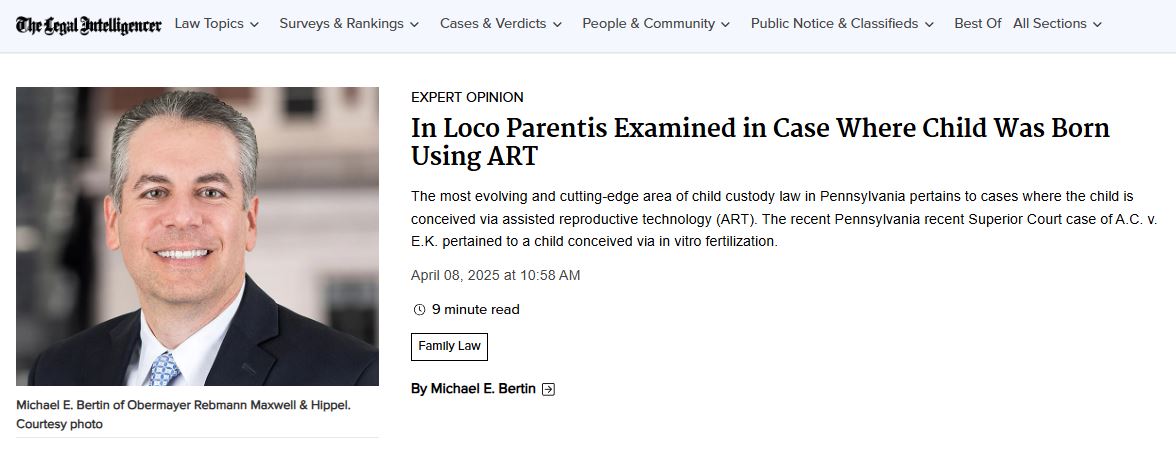Michael Bertin Discusses the Limits of In Loco Parentis in ART-Related Custody Disputes
In his April 8, 2025 article for The Legal Intelligencer titled “In Loco Parentis Examined in Case Where Child Was Born Using ART,” Michael Bertin, partner and co-chair of the family law group, analyzes a recent custody case involving assisted reproductive technology (ART).
In A.C. v. E.K., ___ A.3d ___, 2025 Pa. Super. 31 (Feb. 12, 2025), the Pennsylvania Superior Court addressed whether a non-biological, non-adoptive partner could seek custody of a child conceived via in vitro fertilization using donor sperm. The mother began the ART process before meeting E.K. and later informed him of her plans. E.K. supported her and participated actively in the child’s life, although they never married. Years later, the couple had a second child together using a donor egg and E.K.’s sperm. After separating, the mother limited E.K.’s contact with the older child and filed for custody of their biological child. E.K. counterclaimed, seeking custody of the older child, asserting he stood in loco parentis.
Under the Pennsylvania Custody Act, there are four categories of individuals that can file for any form of physical custody or legal custody of a child. Those four categories are: a parent of the child; a person who stands in loco parentis to the child; a grandparent of the child who is not in loco parentis to the child; and an individual who establishes by clear convincing evidence certain criteria that includes neither parent has any form of care and control of the child.
The court found E.K. did not have in loco parentis status because the mother never consented to him assuming a parental role. The Superior Court affirmed the trial court’s decision to dismiss his custody claim.
This case is significant for practitioners as it contributes to the evolving body of custody law involving families formed through assisted reproductive technology (ART). Notably, A.C. v. E.K. was decided shortly before the landmark Pennsylvania Supreme Court case Glover v. Junior, which adopted intent-based parentage into ART-related custody law. A.C. is distinguishable from Glover because the mother initiated the ART process before meeting E.K. and expressly denied intending for him to be a parent—unlike the mutual intent to co-parent present in Glover.
Read the full article here.


